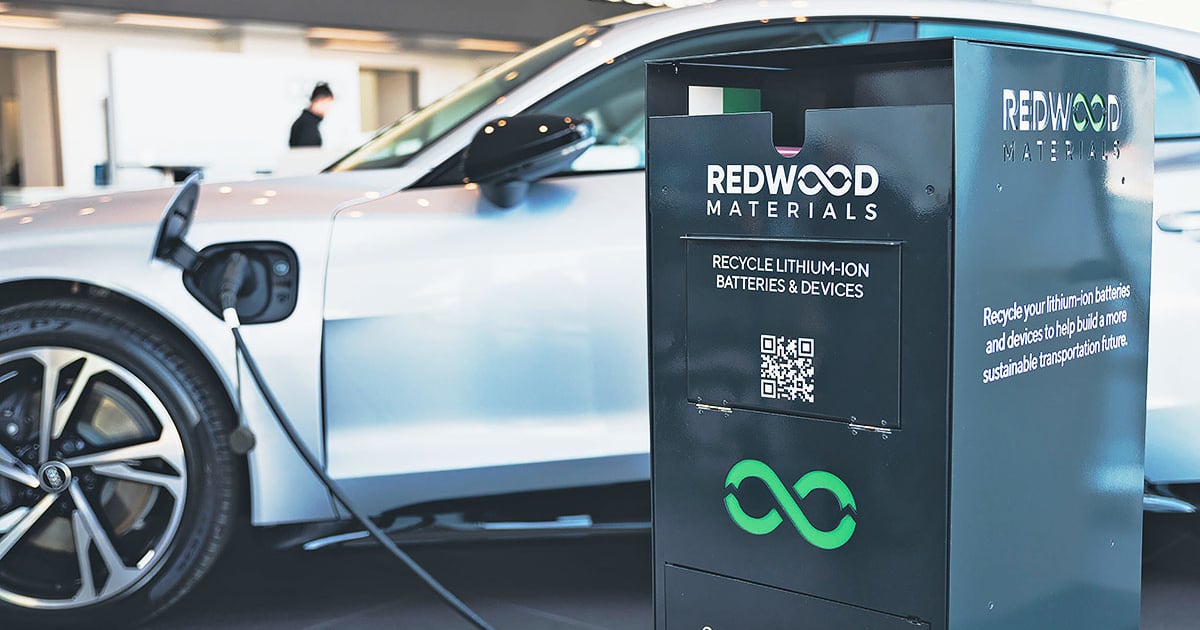
Trash can-size metal boxes popping up in dealerships filled with old cellphones and laptop computers won’t solve automakers’ overwhelming mineral requirements to convert their production to battery-electric propulsion — but they could certainly help.
This month Volkswagen became the second brand, following sibling Audi, to ask its dealers to install metal collection boxes for old consumer electronics — such as laptops, cellphones, electric toothbrushes — from Redwood Materials in their stores.
The reason is simple: While there is likely some gold in all of those old devices taking up space in America’s junk drawers, there are also a lot of other extremely valuable minerals lurking in those devices that can be recycled and remanufactured into battery packs for electric cars.
Nickel, copper, lithium, cobalt and other precious minerals all were common in the batteries powering yesterday’s electronics and can be extremely useful in building today and tomorrow’s EVs, said Alexis Georgeson, a veteran Tesla and Waymo executive now leading the consumer recycling program at Redwood Materials.
“These older end-of-life batteries actually have different percentage mixes of these metals, so we have a strategic opportunity to source them and to break them down and to actually recover high amounts in some of these metals,” Georgeson said. “It will take about 6,000 recycled iPhones to provide enough lithium for a new [EV with a 70 kilowatt-hour battery pack], but just 166 iPhones to provide enough cobalt” for the same battery.
Just roughly 5 percent of old electronics are currently recycled at any level, Georgeson said. Meanwhile, more than 5 billion cellphones are discarded globally each year, including an estimated 120 million to 150 million in the U.S. alone, according to the Waste Electrical and Electronic Equipment Forum. Add in other battery- powered consumer devices, and the magnitude of highly prized minerals winding up in landfills is staggering.
The drop bins started being placed in participating Audi dealerships last year.
Consumers drop their old electronics in the bin, and when the bin reaches a certain weight, dealership employees pull out the box, seal it up, place a prepaid shipping label on it and send it to Redwood Materials’ facility in northern Nevada.
Redwood already partners with the two VW Group brands to collect and recycle used EV batteries and other materials.
Redwood expects to manufacture roughly 100 gigawatt-hours of its own anode and cathode materials by 2025 and believes it will be able to source 100 percent of the required cobalt and copper needs for those materials from recycled consumer electronics, Georgeson said. The company will still have to supplement its supply of lithium and nickel, however.
Georgeson said that even though the consumer program is in the early stages, the company has already collected “tens of thousands of pounds” of recyclable electronics for processing. “We expect to announce some broader partnerships with big box retailers soon,” she said.
“Our approach is to have this be pretty front and center, so that when you walk into Audi or Volkswagen dealerships that already have drop bins prominently displayed, and they’re right up front with a ton of material on them that explains what goes into creating a consumer device,” Georgeson said. “And it will explain that those metals can be recovered and that we can turn those back into a battery component for an electric vehicle.”